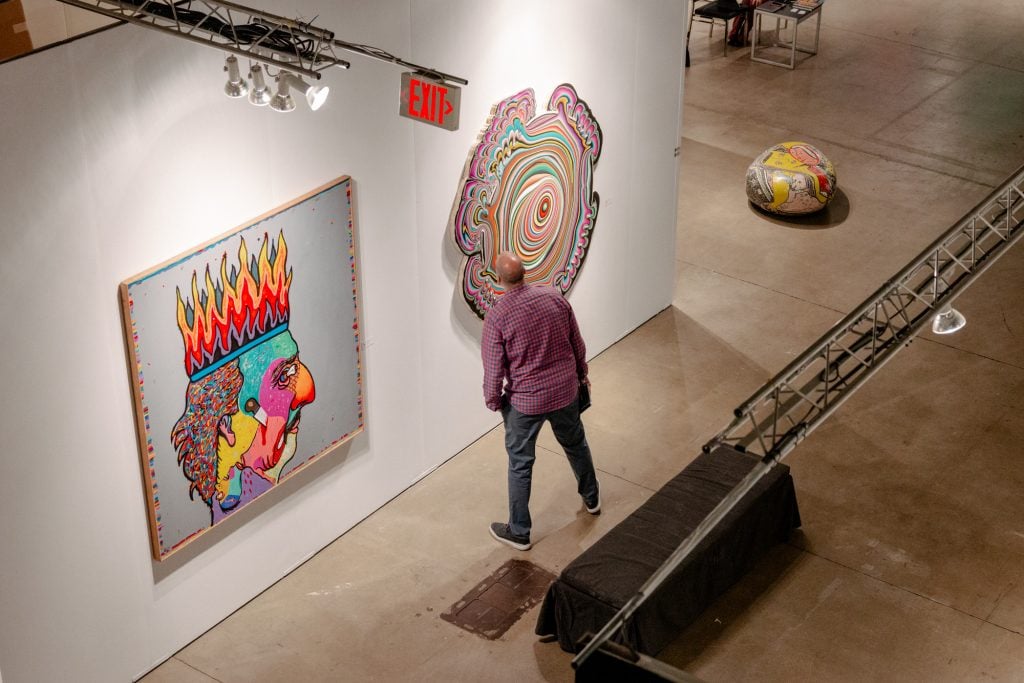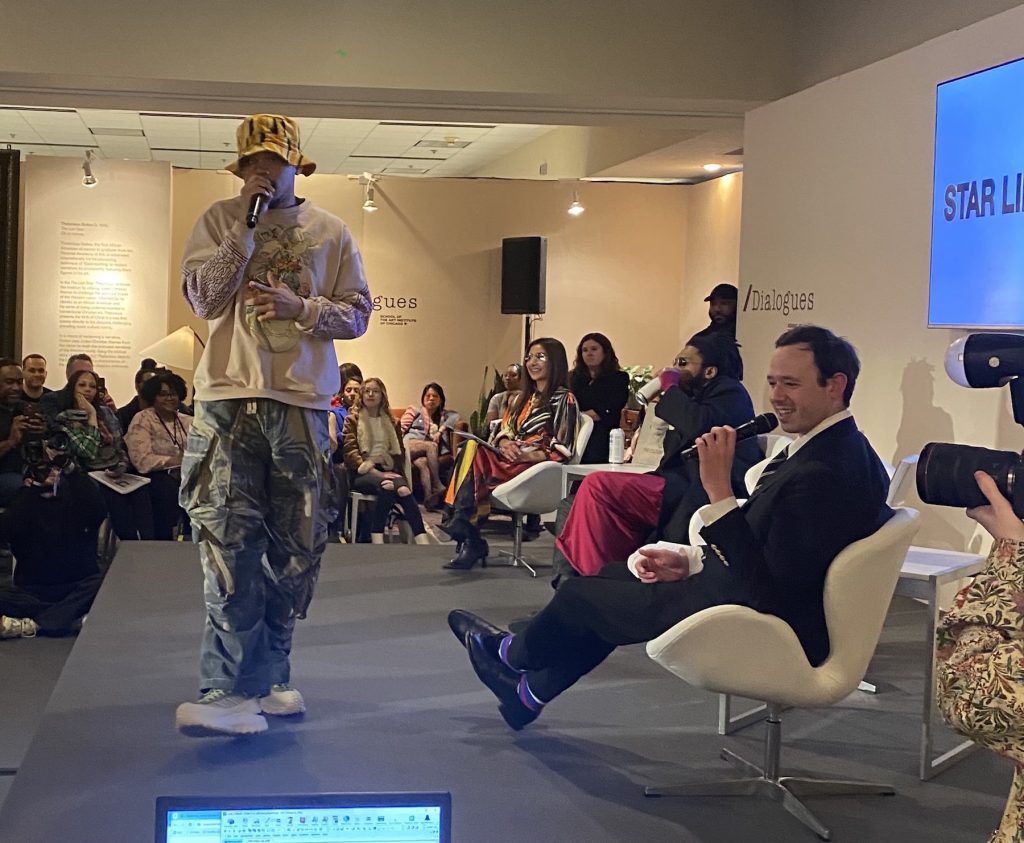Art World
Frieze-Owned Expo Chicago Opens With Fresh Layout—and a Surprise From Chance the Rapper
The 11th edition of the fair is 'the first under the imprimatur of a great company,' its founder, Tony Karman, says.

The 11th edition of the fair is 'the first under the imprimatur of a great company,' its founder, Tony Karman, says.

Eileen Kinsella

Have the look and feel of Expo Chicago changed in its first edition since it was acquired by Frieze last summer?
Yes and no.
The fair, held at Festival Hall on Navy Pier, has maintained its unique energy and regional focus. At the start of opening day on Thursday, it had its typically serious, quiet atmosphere—quite different from the frenzy of many fair openings in Miami, Los Angeles, and New York. It became more energetic as the hours passed, and by the time of the evening VIP reception, it was packed.
“Today feels like every opening day, but with a little more pride,” Expo’s dynamic founder and director Tony Karman said. Being acquired by Frieze was “a statement of excellence in every way,” he said. The international fair giant understands “the importance of the artists, and the importance of a cultural marketplace.”
A slightly revised layout this year integrates “Exposure,” a section for emerging artists, and “Profiles,” for solo booths and focused projects, in the heart of the fair, which has more than 170 exhibitors. (Those sectors were previously situated on the outer aisles.) Frieze also brought galleries from its network to Expo, like first-timers Michael Rosenfeld Gallery (of New York) and Hakgojae Gallery (Seoul).
“Here we are on the 11th edition of the fair, but the first under the imprimatur of a great company,” Karman said. “Frieze has reinforced institutional partnerships and programming. We’re keeping our identity, but enhanced in every way.” (It remains to be seen how Frieze will be affected by its parent company, media-giant Endeavor, going private in a deal announced last week.)
Karman said that, with space in Festival Hall capped at 170,000 square feet, creating growth for the fair does not necessarily mean bringing on more exhibitors. “It comes from creating a footprint and a floorpan that are of service to our exhibitors,” he said. It isn’t about adding another 50 galleries, because there’s no space. We’re beautifully bound by a specific size.”
There were early reports of brisk sales; Artnet will have a full rundown of transactions post-fair.
One big draw on opening day was a panel discussion between fair supporter and influential Chicago arts advocate Chance the Rapper, fast-rising artist Thelonious Stokes (also a Chicago native), and the Baltimore Museum of Art’s director, Asma Naeem. The talk, moderated by Vanity Fair columnist (and Artnet News alum) Nate Freeman, focused on the overlap between hip hop and contemporary art and involved the unveiling of a major painting by Stokes, titled The Last Stair, of a Black Nativity scene. He developed it with Chance, as part of rapper’s ongoing project of collaborating with artists; a song is also in the works.

At left, Chance the Rapper; at right, Vanity Fair columnist Nate Freeman. Photo by Eileen Kinsella.
Chance is an Expo veteran, and told me in an interview a few days before the panel that he was “pretty juiced” to be participating in its “Dialogues” program for a third time.
What was he hoping for from the discussion? “Typically what I expect,” he said, “is that we get to teach a lot of art folks about rap because everybody doesn’t know. It’s my culture and it’s something that I think is like the central conversation of the world, but it’s really not. Expo and [the Venice] Biennale are the places I’ve been in the art world in terms of festivals. It seems like there’s a lot for both cultures and practices to learn from each other.”
Chance said the way that musicians deal with labels is “very similar to the way that artists deal with collectors, gallerists, and dealers. There’s a lot of times where art has become commodified and artists get placed in this creative position where they don’t have very much agency outside of just painting or what they do with how their product gets dispersed or distributed.”
The panel was lively, and the audience was rapt. Stokes, who grew up in Chicago with Chance, shared childhood memories about cutting school and seeking refuge in museums and galleries. He went on to attend the Florence Academy of Art, where he was the first African American oil painter to graduate, and he now has a studio in the Italian city.
At the end of the chat, right before the Q&A, Chance stood up and told audience members to look under their seats. As the room erupted into applause (numerous times), he announced that a couple lucky attendees would find tickets to see his concert on Saturday night at the Ramova Theatre in Chicago.
Expo, for its part, runs through Sunday.